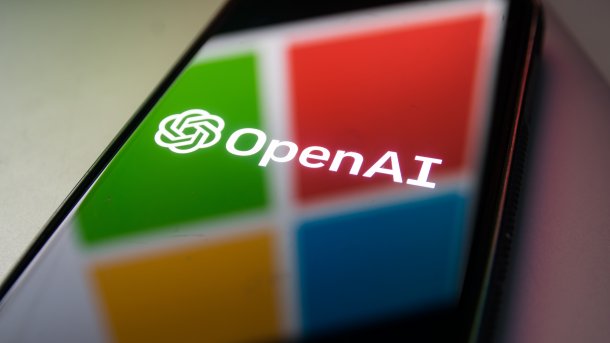Monopoly: EU has further questions for Microsoft, OpenAI, Google and Samsung
Competition Commissioner Margrethe Vestager is seeking further opinions on Big Tech's deals and plans. She believes that we live with monopolies.

(Image: Camilo Concha / Shutterstock.com)
The EU Commission has sent initial questions to Microsoft and OpenAI about the terms of the collaboration. The questions concern possible infringements of competition law, specifically whether the deal promotes the creation of a monopoly. Competition Commissioner Margrethe Vestager has now said that she is in the process of obtaining further opinions from third parties. In addition to the partnership between Microsoft and OpenAI, the cooperation between Google and Samsung is also at issue.
Vestager made her comments at a Commission workshop entitled "Competition in Virtual Worlds and Generative AI". In her speech there, she described both as "hot topics". There are opportunities and risks, optimists and pessimists – "as competition authorities, we have to be realists" who work in the here and now. This includes examining what new challenges will arise and whether the market will continue to be dominated by the established tech giants. Vestager also points out that there could only be a change from one monopoly to another monopoly – in other words, the Commissioner assumes that we are currently living with monopolies.
Microsoft does not dominate OpenAI - but remains the subject of investigation
To avoid repeating previous mistakes that led to the Internet and the market concentration we have today, it is important to understand the market. Questionnaires had already been sent to several market participants in March, including Microsoft, Google, Facebook and TikTok. The answers were apparently not sufficient, and now the follow-up questions are being asked.
Videos by heise
Specifically, the question was, for example, whether Microsoft and OpenAI's cooperation includes exclusivity that has negative effects for other market participants. Furthermore, Microsoft should not have any control over OpenAI – or at least they do not, according to the initial findings of the investigation. What is new is that the takeover of Inflection by Microsoft is being monitored. Inflection is said to be under the control of the former co-founder of Google DeepMind, Mustafa Suleyman, and is working on developing its own language models.
Google's partnership with Samsung has also come under the scrutiny of competition authorities. Google's large language model Gemini Nano is pre-installed on Samsung devices and is Google's smallest model from the Gemini family that has been optimized for mobile devices. Vestager also says there is further research around the AI-based market.
"The possibilities offered by AI seem endless. They range from everyday things like speeding up customer relations, administrative tasks or software development. All the way to cool things like discovering and developing medicines or personalized medical treatment plans," says Vestager. And at the same time urges respect. The Commissioner also positively highlights the investigations by individual member states and the fine that Google has already had to pay because it used content from publishers in France to train Gemini – but did not have permission to do so. According to Vestager, the Digital Markets Act (DMA) also applies to AI companies and AI applications - even if this regulation did not consider AI in its current form when it was created.
(emw)